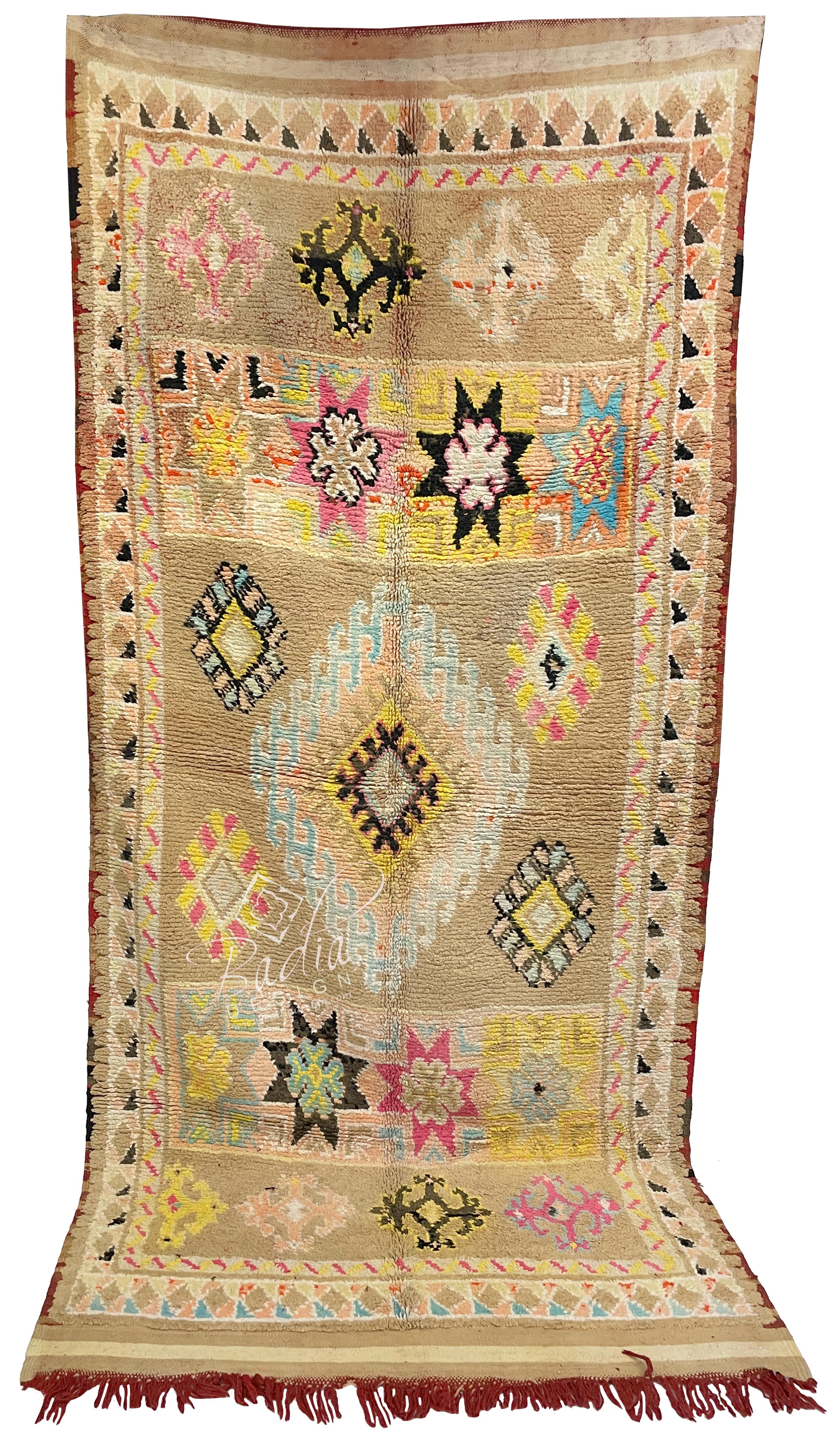Handmade Moroccan Berber Rugs
Handmade Moroccan Berber Rugs
Blog Article
Moroccan Berber Rugs: A Fusion of History, Artistry, and Timeless Elegance
These rugs have enchanted people across the globe with their deep cultural roots, intricate craftsmanship, and timeless design. These rugs can elevate any space, from a snug living area to an elegant hotel suite. In this article, we’ll explore the fascinating history of Moroccan Berber rugs, the detailed artistry involved in their production, their exceptional longevity, and creative ways to incorporate them into today’s interiors.
These rugs originated with the ancient Berber people of North Africa, dating back thousands of years. These indigenous groups, with their rich cultural heritage, developed rug-weaving techniques to meet the demands of their migratory way of life and varied environmental conditions.
The symbols and motifs in these rugs narrate stories that are unique to the tribe or family of origin. Motifs often symbolize concepts such as protection, nature, or fertility, giving each rug cultural significance. Originally, these rugs were crafted for utilitarian purposes, such as providing warmth during harsh winters in the Atlas Mountains or acting as soft bedding in arid desert regions.
During the 20th century, these rugs were introduced to global design by architects such as Le Corbusier and Frank Lloyd Wright, who used them in prestigious projects. Now, these rugs are prized for their beauty and historical depth.
These rugs are created using traditional techniques, preserved over centuries. This craftsmanship embodies a deep connection to tradition and creativity.
These rugs are made from materials like wool, camel hair, and cotton, renowned for their durability and comfort. Wool stands out for being both durable and cozy, as well as for its thermal qualities. The wool is usually spun by hand, resulting in a one-of-a-kind finish.
Berber rugs are handwoven on traditional looms, a process that can take extensive time depending on the intricacy and dimensions of the design. The knotting style, from Beni Ourain’s casual elegance to Azilal’s tighter weaves, dictates its overall quality and appeal.
Natural dyes derived from plants, minerals, and insects are used to create the bold hues found in many Berber rugs. Neutral shades dominate Beni Ourain designs, while brighter Azilal and Boucherouite pieces feature striking colors like red, blue, and yellow.
One of the most celebrated features of Moroccan Berber rugs is their exceptional durability. As a result, they’re an excellent fit for living spaces and work environments.
The use of premium materials ensures that Berber rugs hold up over years of use. Wool’s natural flexibility and resistance to stains make it a ideal choice for lasting rugs.
Taking care of these rugs is straightforward. Routine vacuuming and periodic professional care can preserve their beauty for decades.
Styling Moroccan Berber Rugs in Contemporary Interiors
Incorporating Moroccan Berber rugs into contemporary interiors is easier than you might think. Their versatile designs and textures can complement a wide range of styles, from minimalist to bohemian.
1. Create a Focal Point in the Living Room
A large Beni Ourain rug can serve as the focal point of your living area. The rug’s muted tones and clean lines bring cohesion to the space and exude coziness.
2. Introduce Vibrancy to Minimalist Rooms
In minimalist or neutral spaces, a colorful Azilal or Boucherouite rug can add a bold, eye-catching accent. They are ideal for subdued settings, acting as the central highlight.
3. Layer Rugs for Texture
To create a warm, layered look, place a smaller Berber rug atop a larger rug made from natural fibers like jute or sisal. This combination not only adds depth and texture but also highlights website the intricate details of the Berber design.
4. Elevate the Look of Offices and Workspaces
Moroccan Berber rugs are perfect for adding elegance and warmth to professional spaces, including offices and lounges. The artisanal craftsmanship of these rugs radiates authenticity and refinement.
5. Use as Wall Art
Some Moroccan Berber rugs are so visually stunning that they deserve to be displayed as art. Displaying a Berber rug on a wall highlights its intricate design and cultural significance.
Why Moroccan Berber Rugs Are a Wise Investment
Moroccan Berber rugs combine functionality, beauty, and cultural depth, making them a valuable choice for homes and businesses alike. These rugs are built to last, and their classic designs remain relevant despite evolving decor trends.
Sustainability and Ethical Production
Berber rugs are often made with environmentally responsible and sustainable techniques. Purchasing these rugs helps preserve artisan traditions while enriching your decor with sustainable beauty.
Increasing Value Over Time
Authentic Moroccan Berber rugs often appreciate in value over time, especially vintage or rare pieces. They are both functional decor and collectible assets.
 Report this page
Report this page